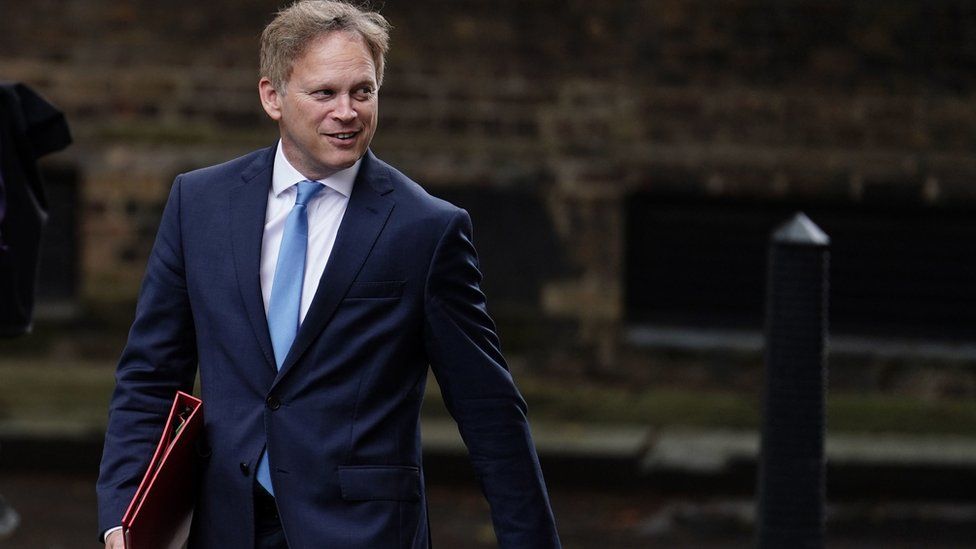
Grant Shapps is one of the most experienced ministers in government having held seven cabinet posts since becoming an MP in 2005
By Sam Francis
Political reporter, BBC News
Grant Shapps has pledge to “continue to UK’s support for Ukraine” as he takes over as defence secretary from Ben Wallace.
It is Mr Shapps’ fifth cabinet job in less than a year, including roles as energy secretary, transport secretary and, briefly, home secretary.
Ben Wallace is standing down as an MP at the next election, after four years as defence secretary.
In a statement, Mr Shapps said he was “honoured” to take on the role.
Mr Shapps said he was “honoured” to be given the role and paid tribute to the “enormous contribution Mr Wallace has made to UK defence and global security over the last four years”.
“I am looking forward to working with the brave men and women of our Armed Forces who defend our nation’s security,” he added.
Mr Shapps visited Ukraine last week, in his previous role as energy secretary, to highlight the UK government’s role in guaranteeing a supply of enriched uranium to the country’s nuclear power plants.
Mr Wallace, who served as defence secretary under three prime minister, said he was stepping down “to invest in the parts of life that I have neglected, and to explore new opportunities”.
In his resignation statement Mr Wallace said his military and political careers has come at “a personal toll to me and my family”.
Mr Wallace leaves parliament as one of the longest serving ministers in government.
As defence secretary he oversaw the evacuation of military personal from Afghanistan as well as the UK’s military contribution to the Ukraine War.
He also called for an increase funding for the armed forces claiming the British army had been “hollowed out” over 30 years.
Children’s Minister Claire Coutinho has replaced Mr Shapps as Energy Security and Net Zero Secretary.
Defence figures, speaking on condition of anonymity, have given the appointment of Grant Shapps a mixed reaction.
While some bemoan his lack of military experience compared to his predecessor Ben Wallace, who served in the Scots Guards, others say Mr Shapps may have some advantages on his side.
His previous work in the department for transport will have given him some idea of logistics, a key factor in supporting any military operation.
This may also help him grip the thorny problem of defence acquisition which has been plagued by delays, failures and overspends.
But there is no doubt that Mr Wallace will be missed by many in the military for his relentless push for more resources.
His forward-leaning stance on Ukraine often made the UK one of the first to offer more lethal weaponry like long-range missiles and main battle tanks, something which won him few friends in the White House.








